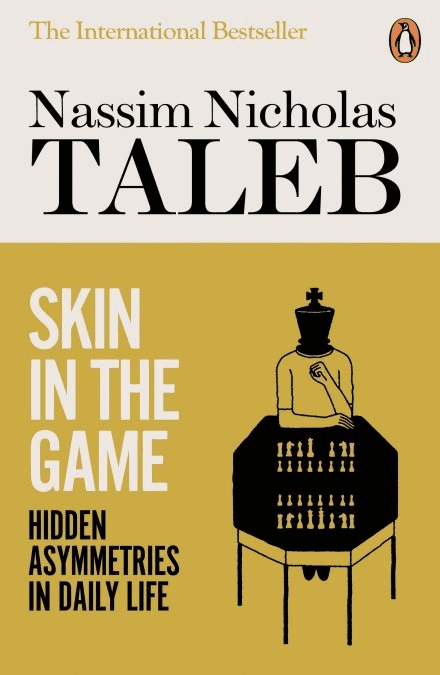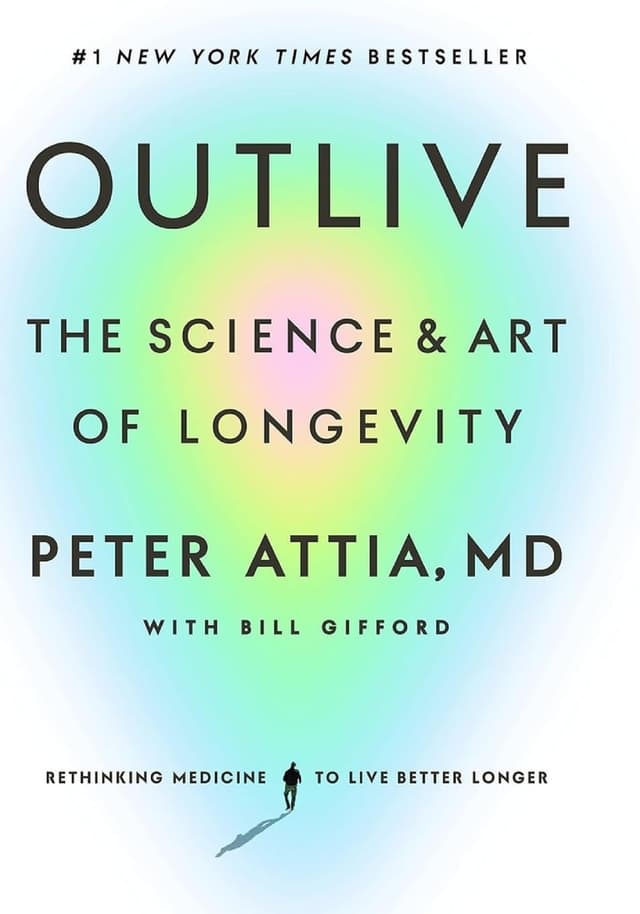Outlive By Peter Attia vs. Skin in the Game: Hidden Asymmetries in Daily Life
Outlive By Peter Attia
Modern healthcare is often reactive. This is part of the reason why preventative medicine is so key.
Skin in the Game: Hidden Asymmetries in Daily Life
Skin in the Game: Hidden Asymmetries in Daily Life is a nonfiction book by Nassim Nicholas Taleb, published in 2018. Taleb’s main point is pretty simple: people should share in the risks of the decisions they make. If you benefit from something, you should also face the downsides if things go wrong. He calls this having “skin in the game.” Without that, people can make reckless choices that hurt others while staying safe themselves. The book covers everything from politics and business to religion and everyday life. Taleb doesn’t hold back on criticism. He talks about how some policymakers and financial experts make decisions that affect millions but don’t suffer when those decisions backfire. He uses examples like bankers profiting during booms but getting bailed out during crashes. Taleb also goes after what he calls “Intellectual Yet Idiot” types—educated people who, in his view, complicate things and give advice without understanding real-world consequences. He argues that real k...

Reviews
Reviews
| Item | Votes | Upvote |
|---|---|---|
| No pros yet, would you like to add one? | ||
| Item | Votes | Upvote |
|---|---|---|
| No cons yet, would you like to add one? | ||
| Item | Votes | Upvote |
|---|---|---|
| Insightful and provocative arguments | 1 | |
| Applies to various aspects of life | 1 | |
| Engaging and accessible writing style | 1 | |
| A sensible approach to ethics | 1 |
| Item | Votes | Upvote |
|---|---|---|
| Some arguments can be repetitive | 1 | |
| Taleb's confrontational tone may not appeal to everyone | 1 |
Frequently Asked Questions
'Outlive' by Peter Attia emphasizes the importance of preventative medicine in modern healthcare, advocating for a proactive approach to health. In contrast, 'Skin in the Game' by Nassim Nicholas Taleb focuses on the concept of personal risk in decision-making and accountability. While both books address important aspects of life and decision-making, 'Outlive' is specifically centered on health and longevity, making it more focused on preventative medicine.
'Skin in the Game' offers practical insights into decision-making by emphasizing the importance of personal risk and accountability in various aspects of life. It blends philosophy, politics, and economics to illustrate its points. On the other hand, 'Outlive' focuses on health and longevity, providing insights primarily related to preventative medicine. Therefore, if you are looking for practical insights specifically related to decision-making in everyday life, 'Skin in the Game' may be more beneficial.
'Skin in the Game' is noted for its engaging and accessible writing style, making complex ideas easier to understand. While 'Outlive' is also informative, it may not have the same level of engagement as Taleb's work. Readers looking for a captivating narrative may find 'Skin in the Game' more appealing.
'Skin in the Game' presents a variety of arguments related to ethics, decision-making, and personal risk, applying these concepts to different areas of life. In contrast, 'Outlive' is more focused on the specific topic of health and preventative medicine. Therefore, readers seeking a broader range of arguments may find 'Skin in the Game' to be more varied.
'Outlive: The Science and Art of Longevity' by Peter Attia focuses on the importance of preventative medicine over reactive healthcare. The book delves into strategies and scientific principles that can help extend human life and improve health span.
Peter Attia is a physician specializing in the applied science of longevity. He is known for his work in preventative medicine and has a background in surgery, as well as expertise in nutritional biochemistry.
The main themes of 'Outlive' include the importance of preventative medicine, strategies to extend life span, and scientific principles to improve overall health. The book aims to shift focus from reactive healthcare to proactive measures that can enhance longevity and wellness.
'Skin in the Game: Hidden Asymmetries in Daily Life' is a nonfiction book by Nassim Nicholas Taleb that argues people should share in the risks of their decisions. Taleb emphasizes that if someone benefits from a decision, they should also face the potential downsides. The book critiques various sectors, including politics and finance, highlighting how decision-makers often escape the consequences of their actions. It explores themes of accountability and the importance of real-world experience over theoretical knowledge.
Nassim Nicholas Taleb is a Lebanese-American essayist, scholar, and statistician known for his work on risk, uncertainty, and decision-making. He is the author of several influential books, including 'The Black Swan' and 'Antifragile.' Taleb's writing often critiques conventional wisdom and emphasizes the importance of practical experience in understanding complex systems.
Pros of 'Skin in the Game' include its insightful and provocative arguments, applicability to various aspects of life, engaging writing style, and a sensible approach to ethics. However, some cons are that certain arguments can be repetitive, and Taleb's confrontational tone may not appeal to everyone.
The main themes of 'Skin in the Game' include accountability, the importance of sharing risks in decision-making, the critique of policymakers and financial experts who evade consequences, and the influence of stubborn minorities on societal choices. Taleb also discusses the concept of real knowledge being derived from practical experience rather than theoretical understanding.
Nassim Nicholas Taleb's writing style in 'Skin in the Game' is direct and sometimes blunt. He is known for his no-nonsense approach, which some readers appreciate for its clarity and honesty, while others may find it overly combative or confrontational.




















